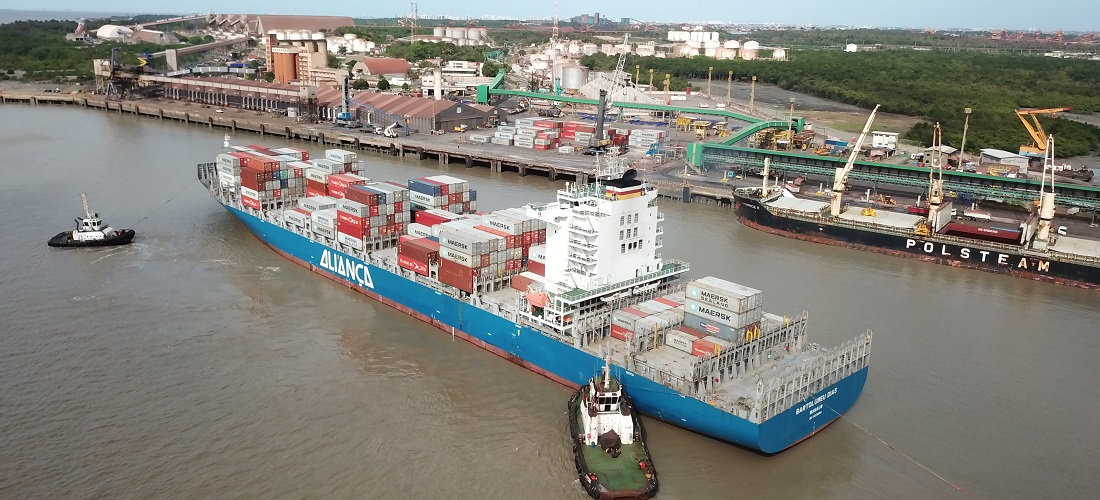
Port of Itaqui announces expansion in fuel storage capacity
Jul, 06, 2023 Posted by Gabriel MalheirosWeek 202326
Santos Brasil, a company specialized in port operations and logistics, has operated in the Port of Itaqui since the end of 2022. This year, they have initiated their expansion plan for the TGL 1 and TGL 3 fuel terminals in the public port of Maranhão. The ongoing works include the construction of new tanks for receiving, shipping, and storing diesel, gasoline, and biofuels.
In addition to expanding the existing terminals, Santos Brasil will also invest in constructing a third terminal (TGL 2), which is scheduled to begin in 2023. The acquisition of the three terminals at the Port of Itaqui by Santos Brasil took place in April 2021, with combined grants of BRL 157.3 million and initial investments of BRL 500 million in construction works. Over BRL 600 million will be dedicated to liquid bulk cargo movement in the Port of Itaqui.
Carlos Quintero, the director of Liquid Bulk at Santos Brasil, explains, “Santos Brasil, with 25 years of experience in containers and integrated logistics, ventured into the liquid bulk sector in the Port of Itaqui due to the excellent infrastructure available at the port. The port is a distribution hub for oil derivatives in the Northeast, North, and Midwest regions and has significant potential associated with agribusiness. Our presence aims to meet the increasing customer demand and contribute to the supply chain in the Arco Norte region.”
In terms of capacity, the ongoing works this year will increase the nominal storage capacity of TGL 1 from 34,000 m³ to 66,000 m³. At TGL 3, the construction of new tanks will provide an additional 30,000 m³ of nominal capacity, increasing it from 20,000 m³ to 50,000 m³. The terminals will have four dedicated pier lines for fuel, with access to the three berths handling liquid bulk in the Port of Itaqui.
Being connected to important railroads, the public port in Maranhão serves as a strategic corridor for Brazil’s Midwest, North, and Northeast markets. With the Santos Brasil liquid bulk terminals, the port can receive ships with up to 155,000 tonnes and distribute the products through road, rail, pipeline, and cabotage transportation.
-
Ports and Terminals
Feb, 23, 2023
0
Turkish port closure affects Brazilian exports through Port of Santos
-
Trade Regulations
Oct, 19, 2020
0
Brazil & USA conclude negotiations on 3 fronts to encourage bilateral trade
-
Ports and Terminals
Apr, 10, 2023
0
Port of Santos privatization still up to debate, say Sao Paulo governor
-
Meat
Sep, 16, 2021
0
Another four countries suspend Brazil’s beef exports due to mad cow disease


